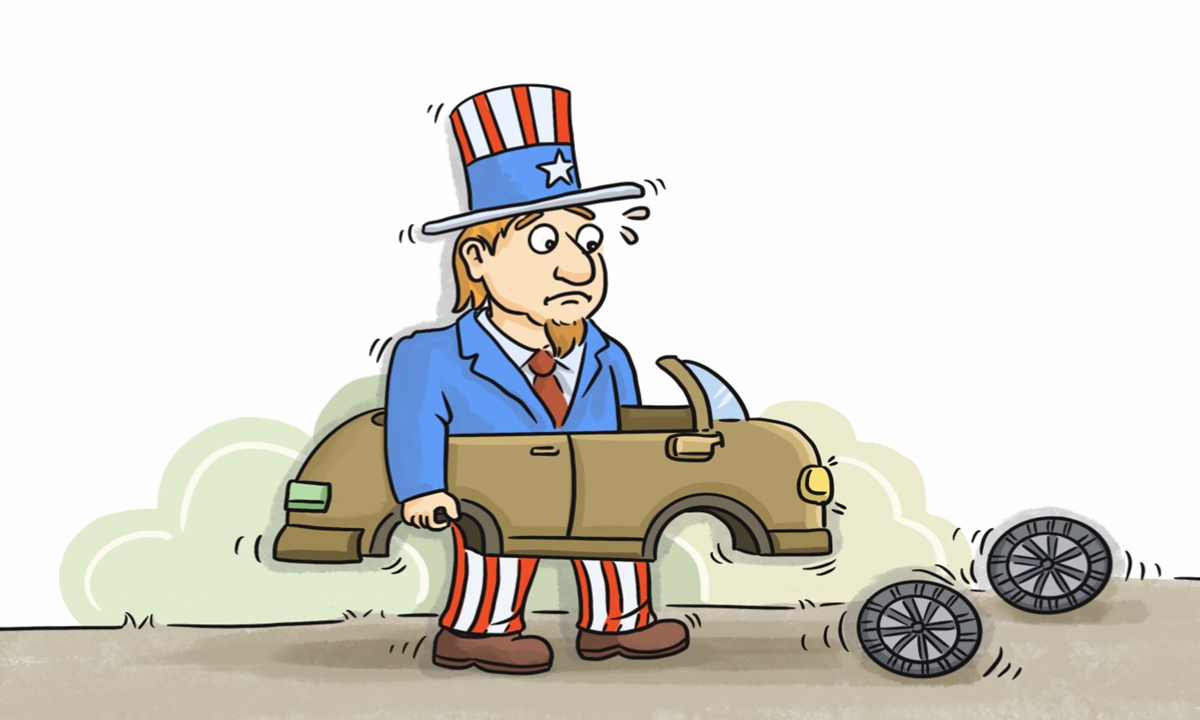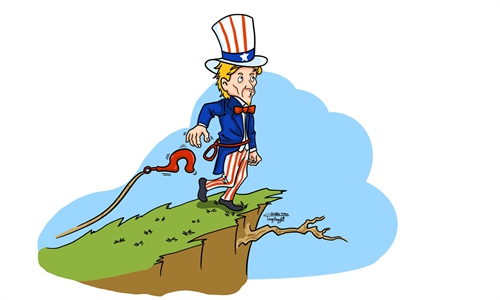
Illustration: Xia Qing/GT
While some in Washington may think "competing with China" rhetoric sells well in the political circle, inserting such China factor in its much-needed infrastructure plan would only underscore the uncertainties and the lack of resolve in pushing forward with the big plan.
As an unprecedented heat wave has taken its toll on the Pacific Northwest this week, it seems that the crumbling US infrastructure needs upgrades more than ever. Pictures of cracked highways and melting cables have gone viral on social media. In New York City, residents were put on high alert to reduce the use of energy under blackout threat. More than 700 residents of a town in California were reportedly cut off running water amid the heat wave.
Moreover, reports of accidents related to problematic infrastructure become increasingly common to hear in the media. Last week, a 65-year-old pedestrian bridge in Washington DC collapsed, with five people injured, according to media reports.
All of these highlight the urgency to fix or upgrade America's ageing infrastructure, which is an undeniable fact. The benefits of a large-scale infrastructure plan are obvious, which is conducive to ensuring the safety of people's lives and properties, creating jobs and promoting regional social development. In a normal situation, there is no need for a government to use ideology or any external factors to justify such infrastructure projects.
However, US President Joe Biden used "China competition" as a selling point to promote his infrastructure package. "China is way out-working us, in terms of infrastructure ... China is going full bore" on infrastructure spending, he said in his Wisconsin speech on Tuesday, according to media reports.
The background of the speech is that the fate of the infrastructure plan in Congress remains uncertain, even though Biden last week reached a compromise over a $1.2 trillion infrastructure deal with a group of bipartisan senators, which shrank sharply from the original level.
For some in Washington, the approach to insert anti-China element in any policy may make it easier to win support, but missing the point of a domestic infrastructure plan may create confusion at the beginning and make its goal hard to achieve.
Although infrastructure plans under the previous administrations were stymied by political gravity, using China as a selling point is hardly the answer to America's infrastructure woes. What infrastructure projects require is a pragmatic and prudent attitude, therefore facing up to the needs of infrastructure upgrades for the country is the right way to start.
If the US really embarks on a grand infrastructure program, it should be seen as a positive development that may bring opportunities for cooperation with Chinese enterprises.



